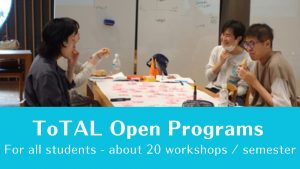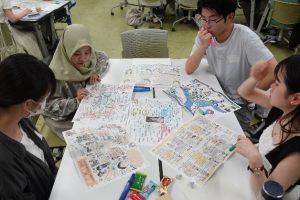The fourth session of the Leadership Core Program, which is part of the ToTAL course “Fundamental Group Work for Leadership”, was held on June 28, 2025.
| Facilitator | Yuri Matsuzaki, Specially Appointed Associate Professor, Academy for Leadership, Institute of Science Tokyo |
| Date and Time | Saturday, June 28, 2025, 14:00–18:00 |
| Venue | Room J2-2002, 20th Floor, J2 Building, Suzukakedai Campus |
[Overview] Self-Awareness and Understanding Others
Activity 1: Forum (Reflection and Dialogue)
■Overview: This activity encouraged us to reflect on our emotions and recent experiences, and then share them within the group to build self-awareness and readiness for deeper conversations.
■Details: We looked back on our relationships with family, friends, and lab colleagues, and recalled recent personal “Highs” (moments of motivation or joy) and “Lows” (moments of sadness or discouragement). Each participant then chose one story to share, followed by open-ended questions from others. This process helped foster empathy and deeper mutual understanding.
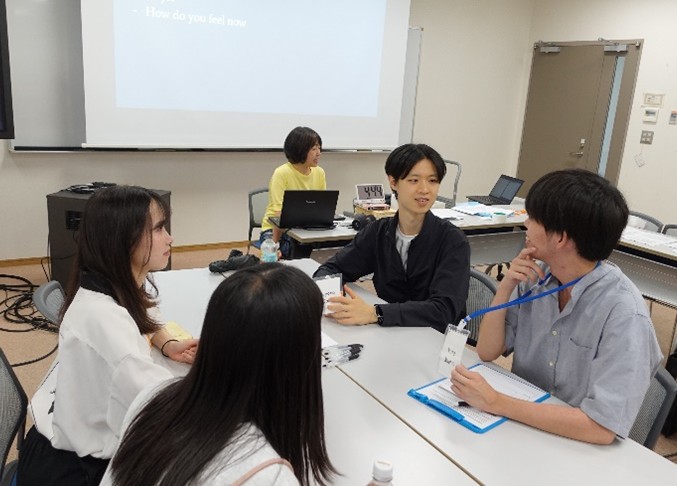
Activity 2: Sharing Research Trends
■Overview: We visualized the trends in our research fields over the past 20 years and explained them in a way even beginners could understand.
■Details: Each participant first created a timeline on paper summarizing their research interests and major developments in the field. Then, in small groups, we presented our summaries and discussed surprising similarities across fields and the future directions of each area. This was a great opportunity to re-evaluate our own research objectively and discover unexpected common ground.
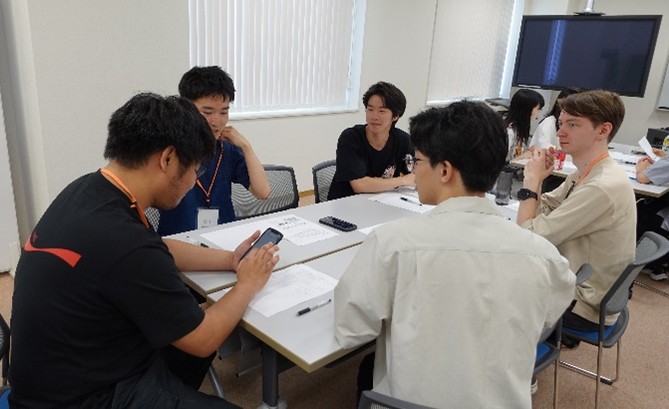
Activity 3: Tuning Fork (Sharing Moments of enjoyment)
■Overview: In pairs, we shared personal experiences in research or learning where we felt enjoyment or inspiration, and then reconstructed the story through the other person’s perspective.
■Details: Each speaker described an “awe moment,” and the listener summarized the story and provided feedback. This allowed us to check whether our messages were effectively conveyed and understood, and deepened our awareness of communication from both the speaker’s and listener’s roles.
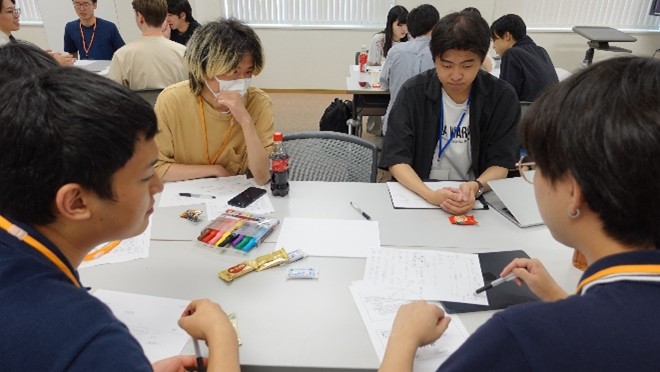
[Overview] Practicing Consensus Building
Activity 4: Prioritizing Key Skills for ToTAL’s Curriculum
■Overview: We selected and ranked the top 7 skills (out of 13) that ToTAL should prioritize in its curriculum, using consensus-building methods.
■Details: Each member first created an individual ranking with reasons. Then, the group spent over 40 minutes discussing and negotiating a shared ranking—without voting. All members worked toward consensus, aiming for an outcome that everyone could accept—even if it differed from their initial opinion—because they understood the reasoning behind it. Through this process, I realized the value of listening to minority opinions, as they often enrich the conversation. It also became clear that consensus depends not only on logical reasoning but also on sensitivity to group dynamics, emotions, and mutual respect. The experience showed me how inclusive dialogue can lead to better decisions and stronger team cohesion.
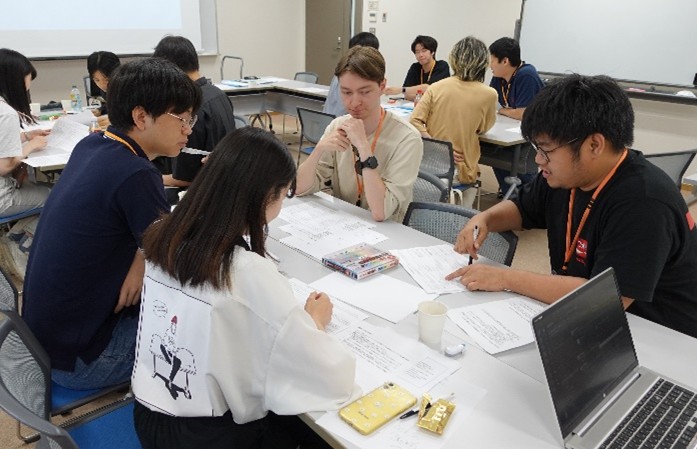
Reflections
This session taught me practical skills for both self-reflection and consensus-building. Activities like the research trend sharing and Tuning Fork gave me new insights into the perspectives and values of others, helping me reassess my position. The consensus-building workshop showed how a group can navigate differences, align priorities, and generate creative ideas through dialogue. I strongly believe these skills are highly applicable not just in research but also in future social or organizational settings.
Additional Note
I joined this workshop as an observer, and I was impressed by how actively the participants engaged in discussion and worked toward shared decisions. For anyone who feels that consensus-building seems “difficult” or “unrealistic,” I highly recommend trying this kind of workshop. It offers a rare chance to experience how thoughtful communication can bring diverse views together. The structure is also very beginner-friendly, so even first-time participants can feel at ease and learn a lot.
Written by:
Yuta Murao, D1, School of Life Science and Technology, ToTAL 6th Cohort

